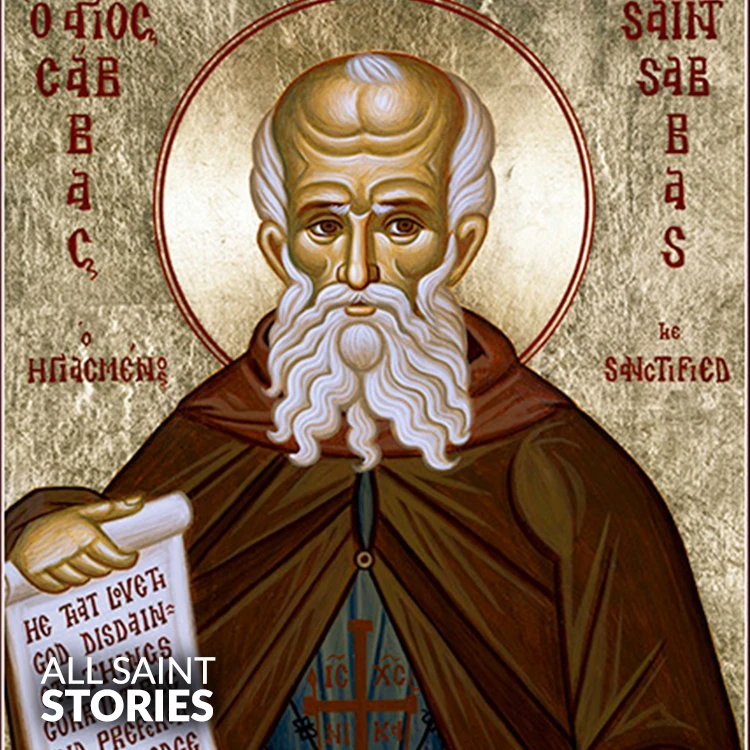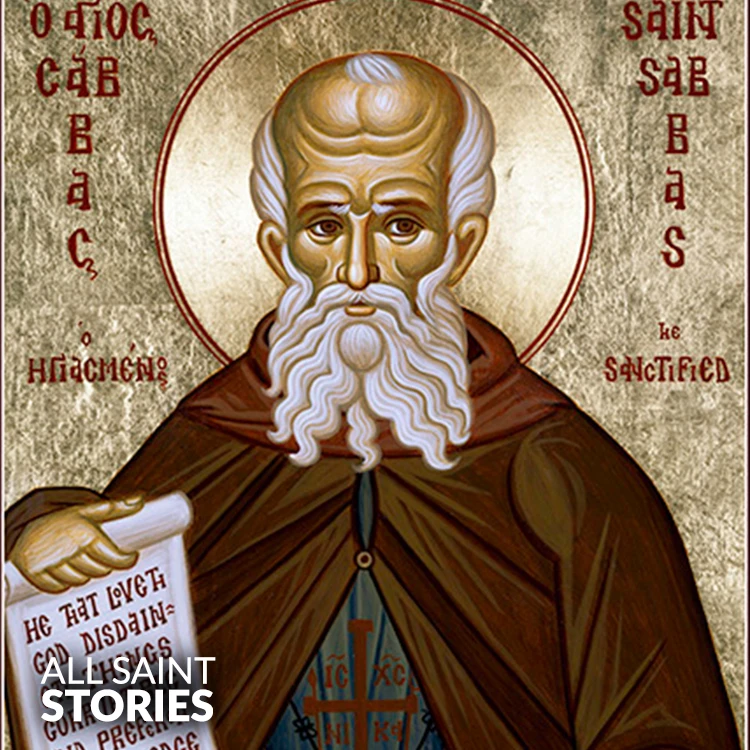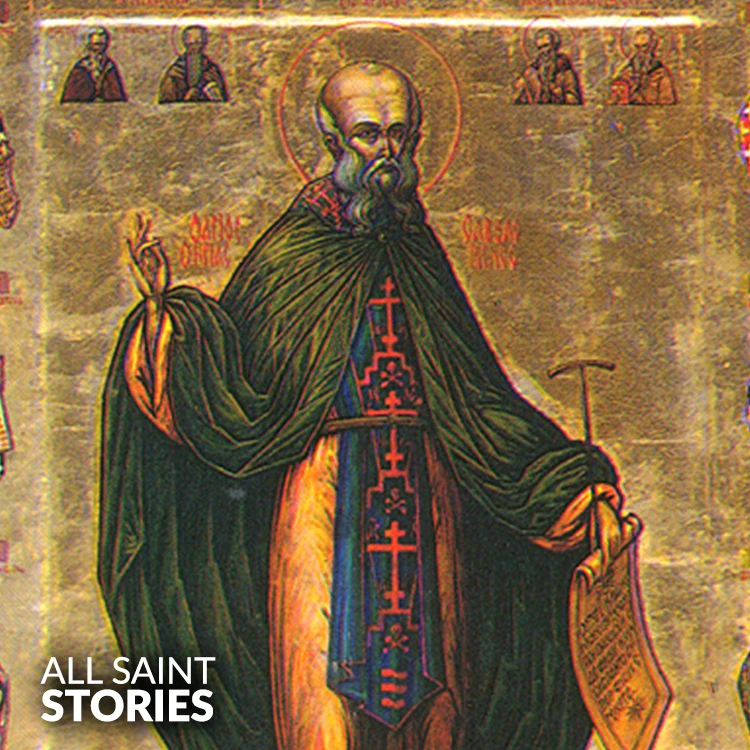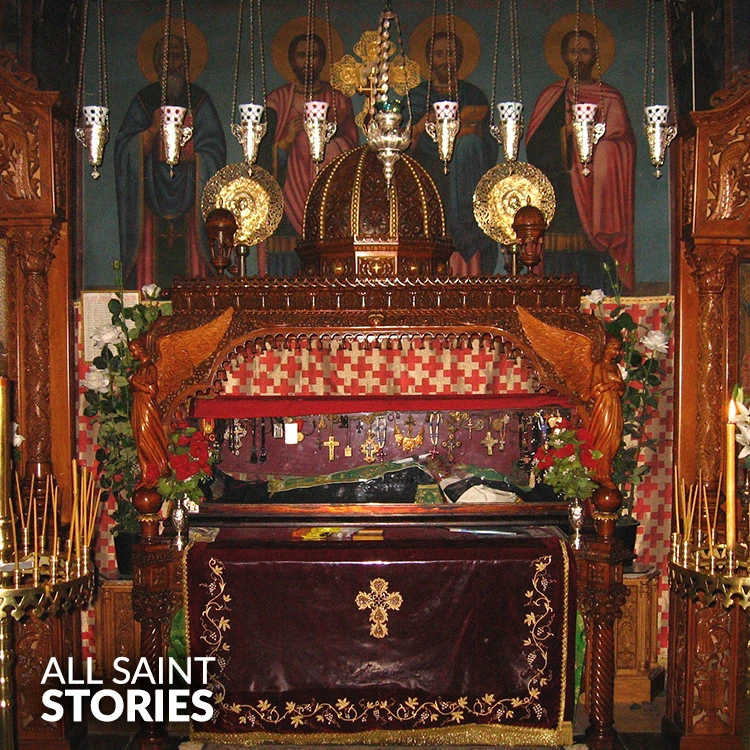"O great St. Sabbas, chosen servant of God, Through your ascetic life and devotion to Christ, You became a shining light for all who seek holiness. Intercede for us before the throne of grace, That we may be strengthened in faith, And live with love, humility, and obedience. Guide us to walk the path of salvation, And grant us peace in our hearts. Amen."
ST. SABBAS THE SANCTIFIED
ST. SABBAS THE SANCTIFIED

St. Sabbas the Sanctified was a 5th-century monk and ascetic who established the renowned Mar Saba Monastery in the Judaean Desert. Revered for his wisdom, holiness, and leadership, he became one of the most influential founders of Eastern Orthodox monasticism.
St. Sabbas the Sanctified, born in 439 in Mutalaska, near Caesarea of Cappadocia (modern-day Turkey), was one of the most revered monastic figures of early Christianity. He is best known for his foundational role in developing monastic life in the Holy Land and for establishing the famous Mar Saba Monastery, one of the oldest continually inhabited monasteries in the world.
Sabbas was born into a devout Christian family. His father was a military officer, and at the age of eight, Sabbas was placed in the care of a monastery while his parents traveled. There, he grew in virtue and spiritual discipline. Even at a young age, he showed signs of exceptional maturity, wisdom, and a desire for holiness.
By age 18, Sabbas had moved to Jerusalem and joined the monastery of St. Euthymius, one of the greatest spiritual masters of the time. Under his guidance, Sabbas matured spiritually and eventually withdrew deeper into the desert to pursue a life of hermitage and solitude, often living in caves and surviving on minimal food and sleep.
Despite his desire for solitude, his reputation for holiness attracted disciples. Around 478, Sabbas established a communal monastic life known as a lavra, a type of monastery combining solitary and communal life. This eventually became the Mar Saba Monastery, nestled in the rugged cliffs overlooking the Kidron Valley near Bethlehem. The monastery quickly grew in size and influence, becoming a center of liturgy, learning, and asceticism.
St. Sabbas is credited with organizing the Typikon, or liturgical rules, which governed the monastic community and influenced Eastern Orthodox liturgical practice for centuries. His spiritual leadership and guidance helped form the foundation of Eastern monasticism and influenced both the Orthodox and Eastern Catholic Churches.
In addition to his spiritual work, Sabbas also became involved in the theological disputes of the time, particularly in defending orthodoxy against various heresies. He traveled to Constantinople to speak with the Emperor on behalf of the Church and the monks of Palestine. He was greatly respected by Church leaders, emperors, and laypeople alike.
Sabbas died peacefully on December 5, 532, at the age of 93, after nearly a lifetime of prayer, service, and monastic leadership. His body is enshrined in the Mar Saba Monastery, and his tomb remains a place of pilgrimage to this day.
Video Not Found
The information you see here may be either accurate or might contain some discrepancies, as it is gathered from various sources. If you believe that any part of the details about this saint is incorrect or incomplete, we kindly invite you to share your suggestions or corrections with us. Your insights are invaluable in helping us ensure that we provide the most accurate and reliable information.
We encourage you to use the form on the left to submit any corrections or additional information you may have. Whether it's a small detail or a larger correction, we will carefully review your submission and update the information accordingly. Your contributions will not only help us maintain the integrity of the content but also benefit others who seek to learn more about this saint. We greatly appreciate your assistance in making our information more accurate and complete.
Please rest assured that your personal details will remain confidential, and your suggestions will be handled with the utmost care. Together, we can ensure that the information about this saint is as accurate and informative as possible. Thank you for your time and contribution!
If you have any suggestion about ST. SABBAS THE SANCTIFIED
Your suggestion will help improve the information about this saint. Your details will not be disclosed anywhere.
© 2025 Copyright @ www.allsaintstories.com




 English
English
 Italian
Italian
 French
French
 Spanish
Spanish
 Malayalam
Malayalam
 Russian
Russian
 Korean
Korean
 Sinhala
Sinhala
 Japanese
Japanese
 Arabic
Arabic
 Portuguese
Portuguese
 Bantu
Bantu
 Greek
Greek
 German
German
 Dutch
Dutch